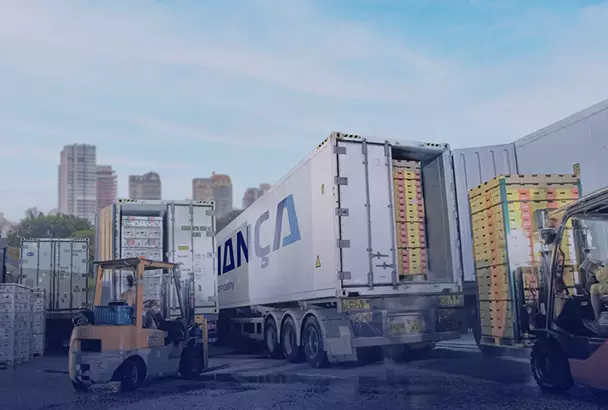
How having a reliable partner can ensure excellence in food logistics
Article
Food and beverage logistics face a number of intrinsic challenges unique to this industry. Ensuring that food gets to store shelves quickly and in good condition requires specific and strategic planning that takes into account the end-to-end process.
The Report of the Food and Agriculture Organization of the United Nations (FAO), in partnership with the Organization for Economic Cooperation and Development (OECD), released in 2020, reveals that global agriculture will need to increase its food production by 70% in the next 30 years for a population of nearly 10 billion people. In this new scenario, Brazil will play a fundamental role.
Today, Brazil is the third largest food producer, only behind China and the United States. This international prominence would not have been achieved without the support of an important transport system, capable of assuring not only the integrity of food, but also its quality during transportation in order to meet the demands of the domestic and foreign markets. This is common knowledge to Aliança, because of its contributing role to the evolution of food logistics and this sector’s history in Brazil.
A continent-sized country, even bigger challenges
We know that our country is endowed with large tracts of fertile land. It’s for this reason that it’s so important to have a specialized and personalized transport as much as possible. After all, each cargo has its own specific best practices for preserving its pristine condition during storage and transport.
There are many alternatives for transporting different types of goods. In addition to equipment for dry goods, there is the transport of refrigerated products, which are more sensitive to temperature variations, for example.
In the Brazilian market, the main product transported in refrigerated containers via cabotage is chicken. Poultry is produced mainly in the south of the country and represents more than half of the total volume of this type of cargo. To distribute this production to the most distant places in Brazil, Aliança offers an infrastructure capable of transporting sensitive items in a safe and effective way.
For 2030, the Brazilian Ministry of Agriculture, Livestock and Supply estimates a production of 34.9 million tons of poultry, beef and pork in Brazil. The main highlight is a 28.1% growth in poultry production compared to the beginning of the decade, followed by a 26.8% increase in pork and 16.2% in beef.
For the transport of this and other types of food, Aliança has access to A. P. Moller-Maersk's global fleet of 300,000 refrigerated containers and 2,800,000 dry containers.
In recent years, the food industry has faced increasingly tougher challenges. With the constant increase in demand, Aliança has adapted in order to find the most suitable transport solution for your business. By sea, rivers, land or rails. From end to end. From person to person.
Uelinton Alves
Refrigerated Cargo Specialist

Recent news
 Article
Article
Twenty years of container cabotage in Brazil: Aliança strengthens itself as a leader in the transport modality
Annually, the A.P. Moller - Maersk handles approximately 350,000 containers along the country's coast
 Article
Article
Cold chain challenges require agile solutions
The challenges that perishables exporters face each season are never the same. In the Americas, for example, they may encounter severe weather conditions, labor issues, significant cost increases and port congestion.
 Publications
Publications
Sustainable Logistics, a path to a better world
Learn more about the main aspects of climate change and what your company can do to achieve a better world.
